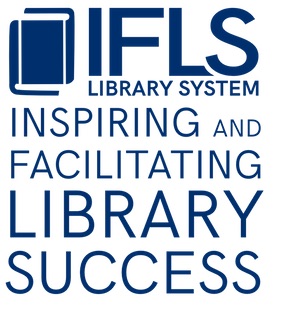Thanks to Jessica Dunn from the Colfax Public Library for this post. Jessica received a scholarship from IFLS (with IMLS funding) to participate in an eight-week class from the UW-Madison iSchool, Desk Ready.
This eight-week class, “Reference Desk Ready,” was through the iSchool at UW-Madison. The class included topics such as the reference interview, techniques for online searching, information literacy skills, application of AI, and evaluating resources. The goal of the training was to provide library staff with additional search and information skills that will effectively serve patrons’ needs.
The class started out with how to conduct a successful reference interview. Steps to include in the interview should include: Welcoming patron, listening, clarifying to find the real question, verifying the need, finding the info, and follow-up.
We compared search engines, they are not created equal and it’s important to consider they might also have bias. Interesting to learn about how AI/predictive tech lacks any regulatory framework, and that it can be oppressive and biased. Because it has no ability to change/learn like humans it can be “worse for people not doing well and better for people doing better.” Food for thought on that topic I had never considered.
There are some key takeaways from this course that will help all information users. The first evaluation method to use is called the CRAAP test. This method is based on Currency, Relevance, Authority, Accuracy, and Purpose. Thinking about how these things pertain to your information can help you better determine the credibility of your sources and the quality of your information.
One week was focused on Readers’ Advisory. The 4 doorways to ask about to learn what patrons like are: Characters, setting, story/plot, and language. Other things to ask about could be tone, pacing, writing style, length of book, what other authors/books they enjoy, what movies or characters they like. We talked about utilizing booklists, bestseller lists, and Novelist and how talking with co-workers about what they are reading, being well-read yourself, and keeping up with new releases across genres were suggested as good ways to become better at RA.
The course also emphasized the differences between databases and websites, highlighting that scholarly databases offer peer-reviewed, reliable content, while websites can vary widely in quality and bias. When looking at information online it’s always wise to consider who is the source and what is their purpose. One simple tip is to always read the “About” page on a website to learn more about the company, person, or organization that is providing the information. Then do a quick online search outside of that entity’s website to verify what they say about themselves.
Additionally, the training explored the responsible use of artificial intelligence tools, recognizing their potential to assist with research and writing while being mindful of ethical considerations and the need for critical thinking. AI can generate plausible-sounding but false information called “hallucinations” so always verify critical facts with trusted sources. Be careful using AI-generated content for legal, medical, or financial decisions without human oversight. Use AI to assist, not replace, human judgment.
There are many topics on information literacy that we can provide instruction for through the library. Some examples are library focused like how to use the library, Libby, microfilm readers, databases. Others might be more about safe internet searches and how to use the CRAAP test. Bottom line, if you want an information professional to help you with verifying your sources or information, please visit your local library😊
